In Scotland, where Bruichladdich Distillery operates and was originally established in 1881, whisky making is more than an industry––it’s a centuries-old art form. It is a part of the culture, it is a way of life––and it is an indispensable part of the lives of its drinkers. And Bruichladdich makes its whiskies with that in mind; the goal of honoring the past, while utilizing modern technique along with the most high quality barley to continually pursue the best experience possible––one worthy of any occasion, be it any given Friday evening, or as a special gift on Father’s Day. Bruichladdich highlights the time-honored and authentic tradition of the craft, so that each whisky can become a part of future traditions, in glasses of whisky lovers all over the world.
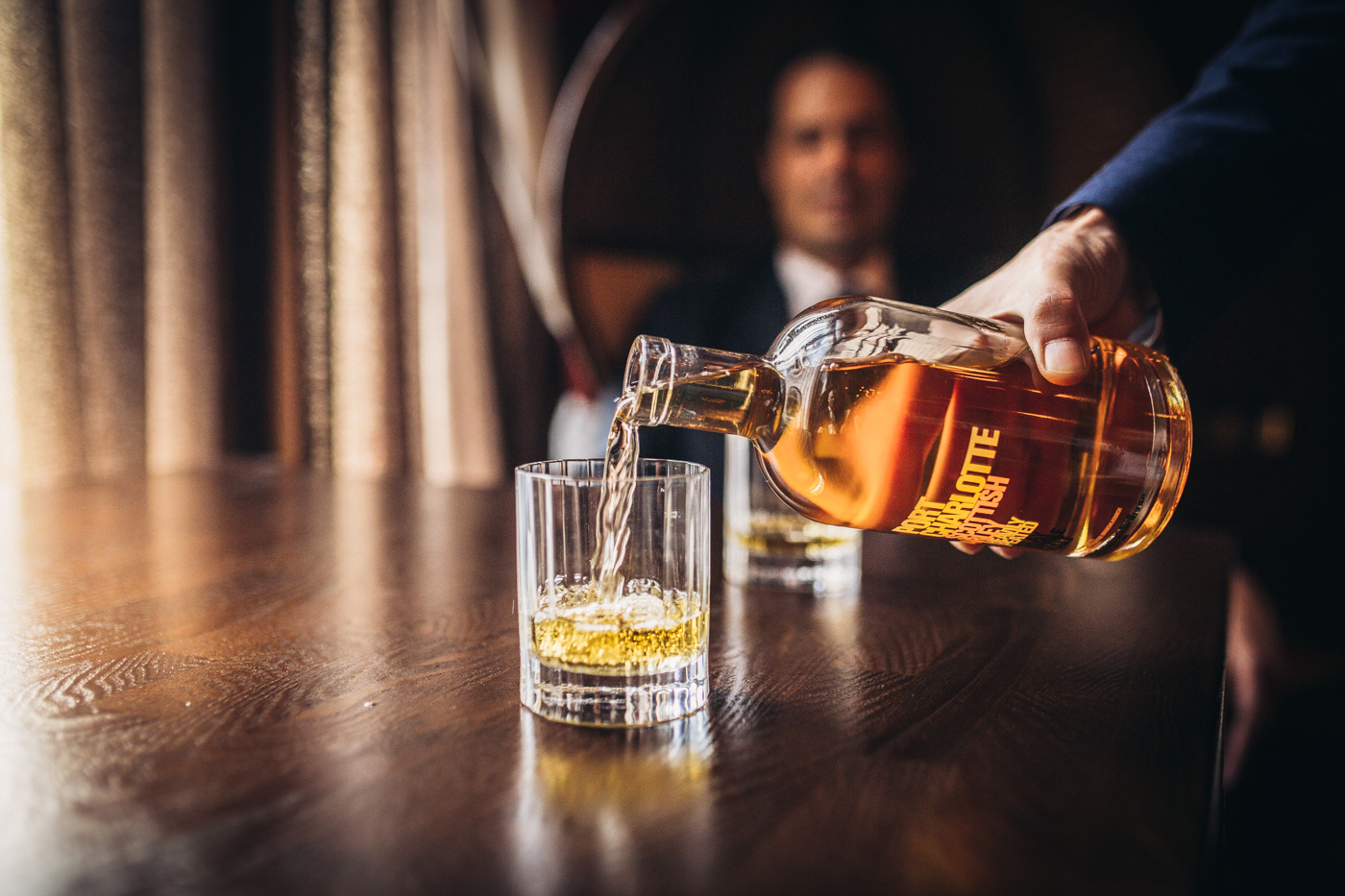
The authenticity of each bottle is in the distillery’s respect for the terroir around it, and for the people who crafted it. Because good whisky has spirit––of past and present, of people and place. Those are the things that give good whisky soul, and the soul of Downtown Los Angeles is anchored by a similar philosophy. There, the corner of 7th and Olive is electric. It’s a place where historic buildings stand sentry over the streets below. It is an intersection of light and sound. Of new and old. And tucked within one such building is an institution that has provided respite for over more than a century to everyone from Olympic athletes and local businessmen to Hollywood writers and actors, politicians and poets, including Walt Disney, Frank Baum, Charlie Chaplin, to name just a few. It is the Los Angeles Athletic Club, and it is a place that’s essential to the city––a haven, a spot to meet, to stay, to get away. And it has been in the charge of a single family for the last five generations.
Each of these generations has faced the challenge of respecting its roots while staying relevant to the changing world around it. In each era, that task has come to rely on one relationship––that between a father and son––and at the heart of the hustle of this particular epoch is one such pair of gentlemen. When I met them at the club on a Thursday in 2017, in the clubs aptly named and themed Invention restaurant and bar, the walls around me echo their family’s deep history and appreciation for it. But the men before me are modern and stylish, measured and steady with a sense of ease and even keel that comes only with experience. Steve and Cory Hathaway are the latest in a long lineage of fathers and sons at the helm of the LAAC.
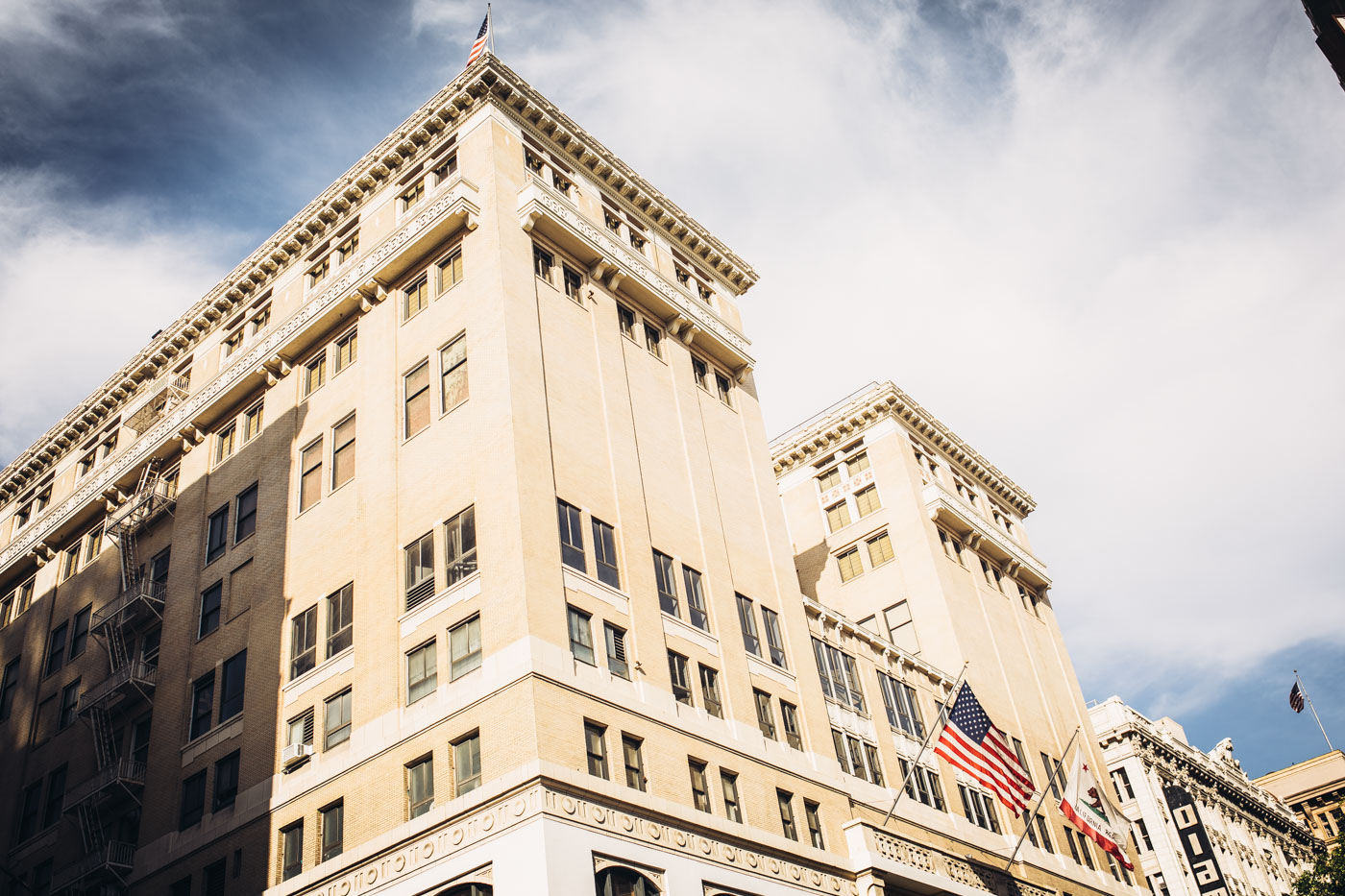
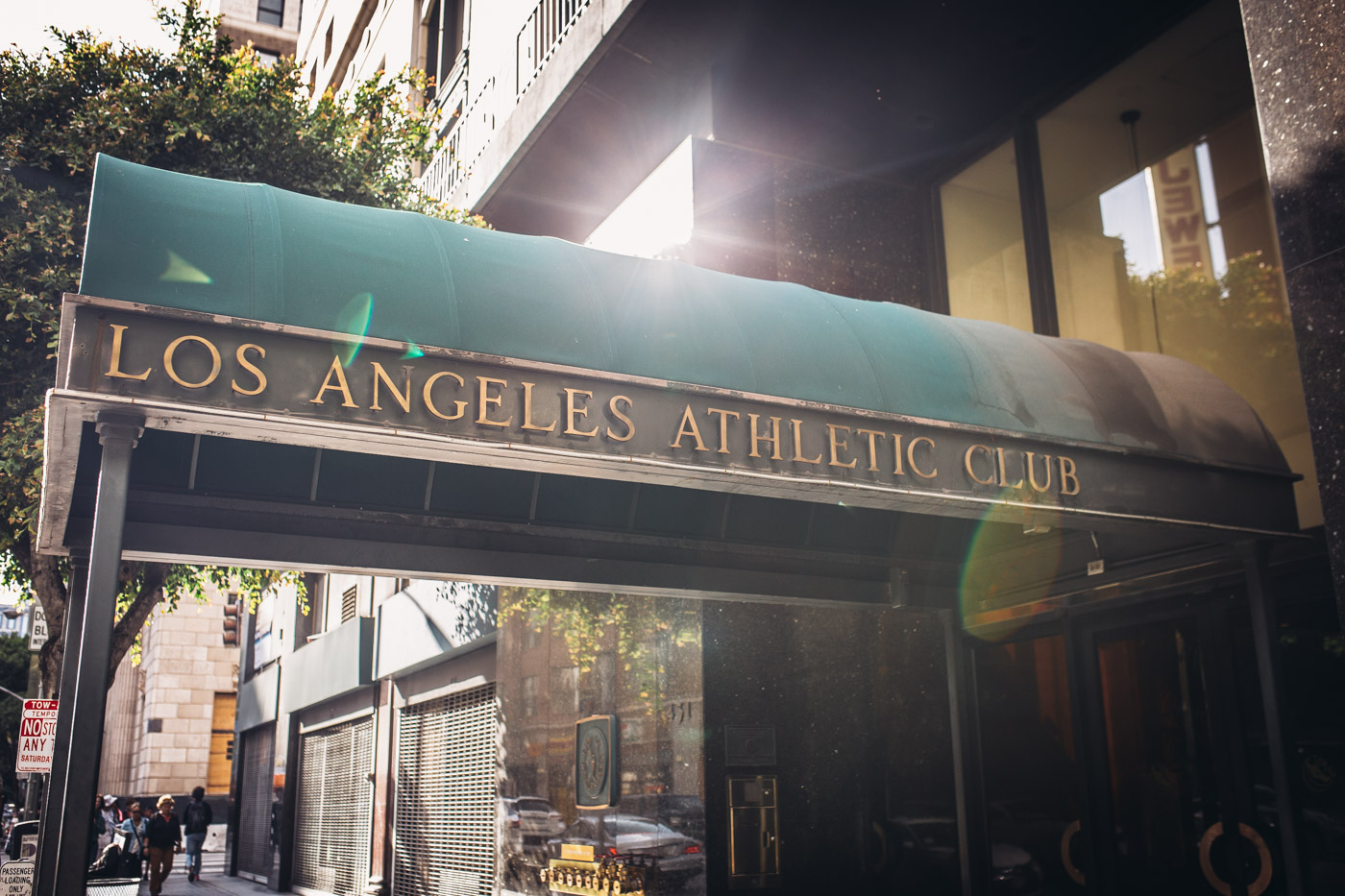
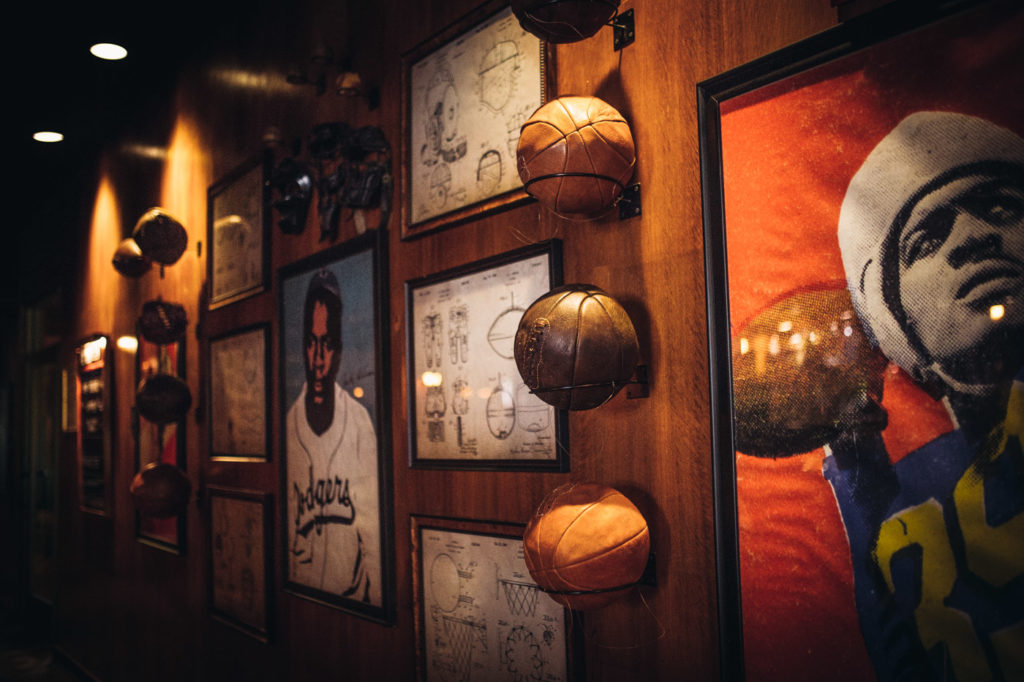
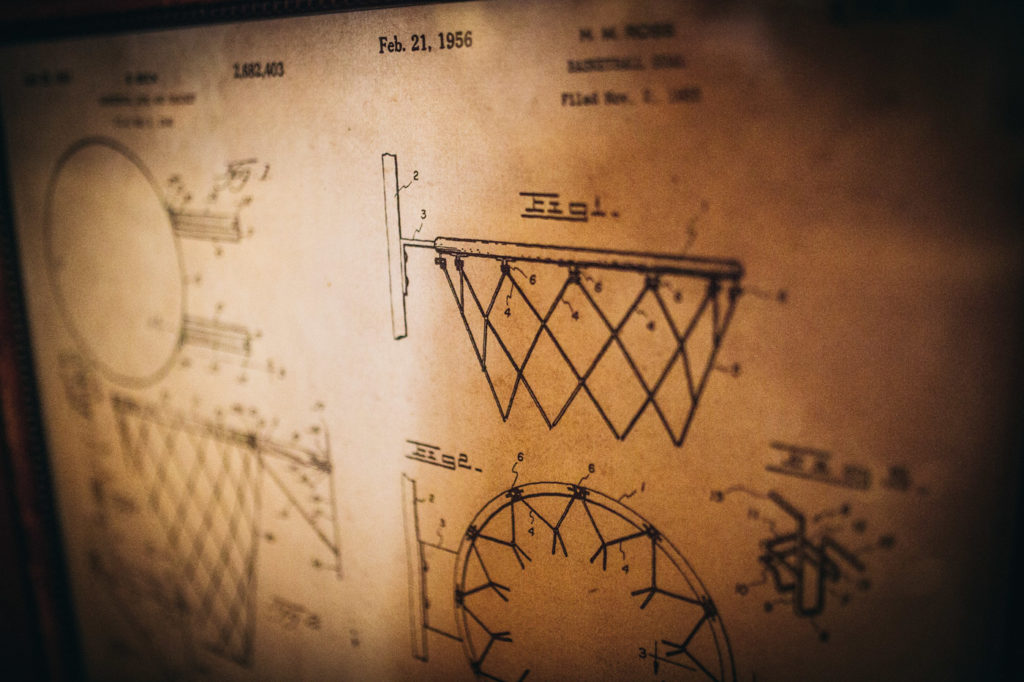
Around the restaurant, members take part in various activities––they host business meetings, they enjoy lunches and cocktails. One member is at work setting up for the live jazz trio that will be striking up soon. The place is abuzz, and everywhere is evidence of the Hathaway’s entrepreneurial efforts. While the mast has been handed down to each of them, it has also been critical for the men to exercise a progressive spirit––an idea they share with the whiskies they’re sitting down to enjoy. Similarly, Bruichladdich Distillery takes inspiration from its forefathers, but is also built upon the idea of innovation––of paying homage to the past, but never being stifled by it. And the two bottles between them are perfect examples. The Port Charlotte, with its elegant and complex peated character, pays tribute to whiskies of the Lochindaal Distillery and the men who created the spirit there––much in the way Cory and Steve honor their predecessors. And the Classic Laddie, its unpeated sister––a clean expression of quality, crafted on original Victorian machinery with an eye on contemporary flavor.
The club, which was founded just one year before Bruichladdich’s own establishment, in 1880, took up its current residence in 1912 when the building was constructed for its purpose. “My great grandfather was instrumental in getting this building built,” Steve says, taking a seat in a restored chair by a window overlooking 7th Avenue. “My grandfather and my grandmother were involved through the 30s and 40s and then my father and his brother ran the company for 40 years.” It was after that decades-long run that Steve took the reigns in 1990. The Hathaways also run LAAC’s sister establishment, the California Yacht Club, which is where Cory recalls spending a good deal of his childhood days.
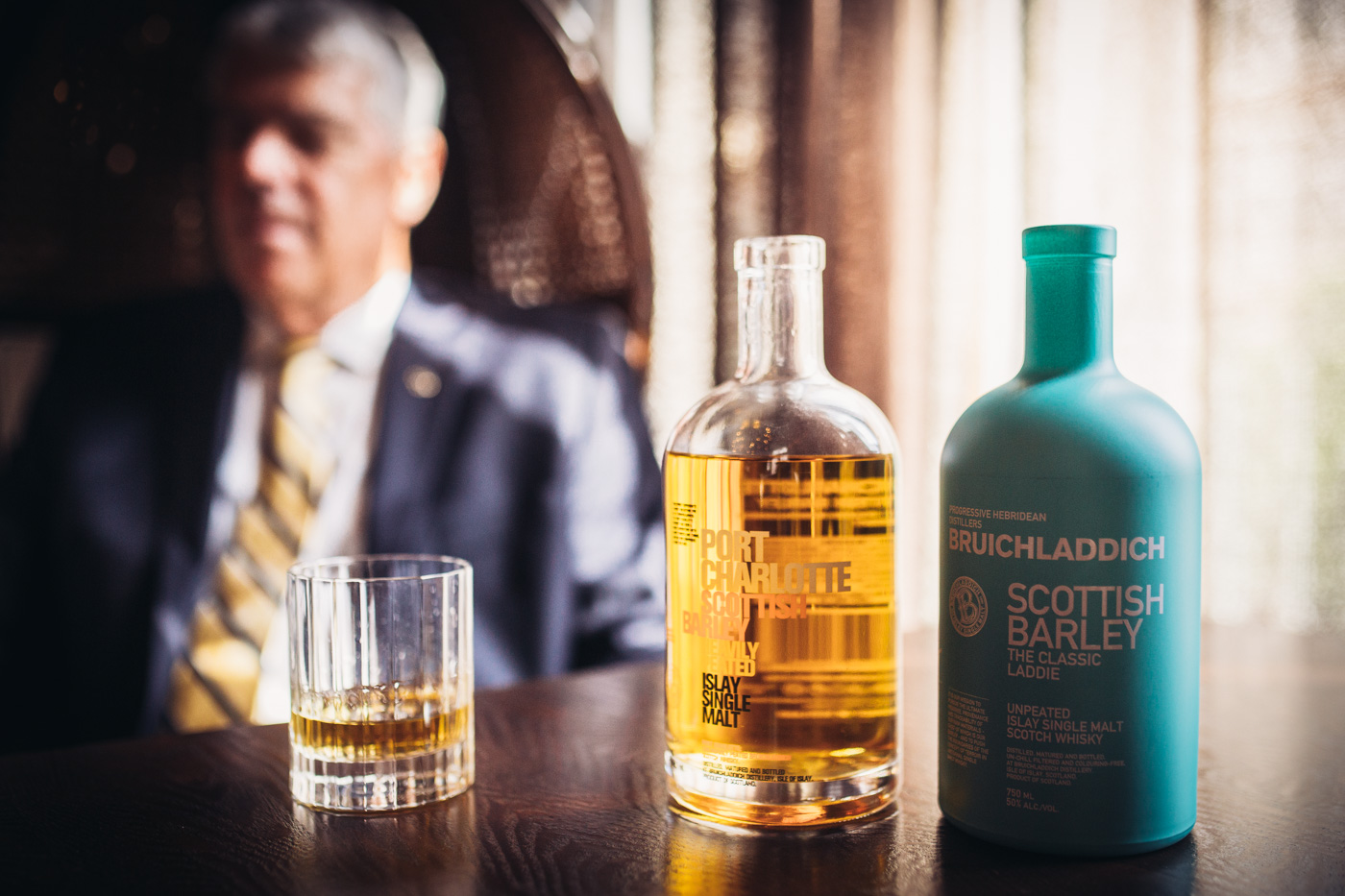


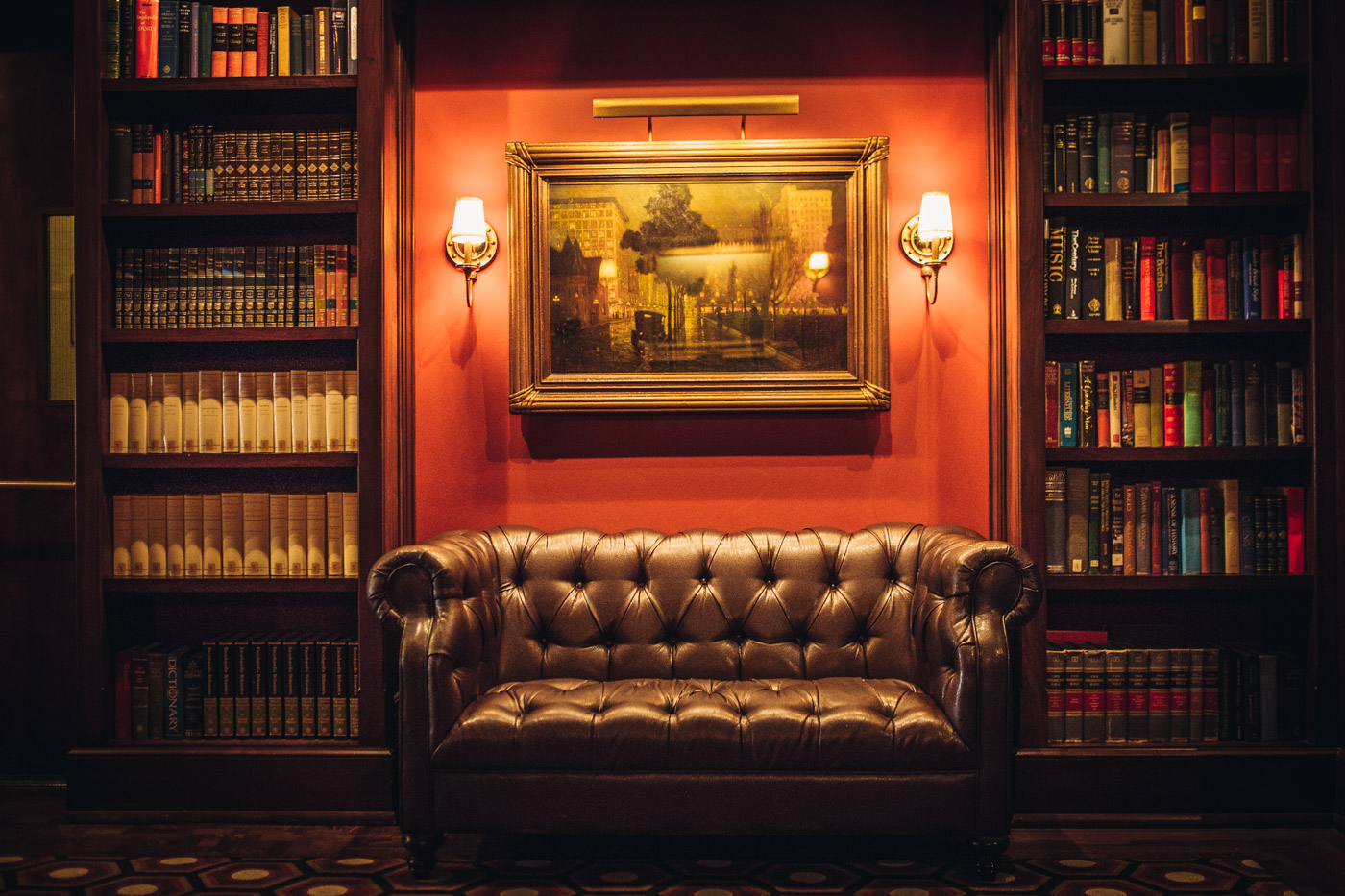
“Oh, man, this club was like a giant playground,” he laughs, remembering the games he made of his father’s and grandfather’s workplace. “We had a stronger connection to the Yacht Club growing up, because this club was pretty formal for kids. The Yacht Club is outdoors with a pool––the type of pool that can you run around and jump in––not just the type that you swim laps in.” Later, Cory found slightly more adult pursuits at the club; in 1995 he took his first job painting the docks.
Both Steven and Cory grew up in the clubs, respectively, and were each bitten by the sailing bug. Steve says, “Like Cory, I spent most of my time as a child growing up at the Yacht Club. I’m heavily into boating; I’ve done a lot of sailing, racing and cruising, which I’m still pretty active in.”
Cory picked sailing up after his initial interest in ice hockey waned. But Cory and his siblings had been enjoying the family hobby long before; in 1978, when he was just a year and a half old, the Hathaways took a family sailing trip to Tahiti for six months. “We sailed down there from LA on our family sailboat. Cory was in diapers,” Steve laughs. “We’ve done a lot of local racing together as a family.”
Sailing was inherited not only by Cory and his brother, but also by Steve from his own father, Charles Hathaway. “I’ve done a lot of offshore racing––some of which was with my dad,” he reflects. An interest in balance, life outside work and beyond the club’s walls, is something the Hathaways have made an effort to maintain throughout the generations. “My dad always said, ‘Always maintain balance in life: work, hobbies, family.’”
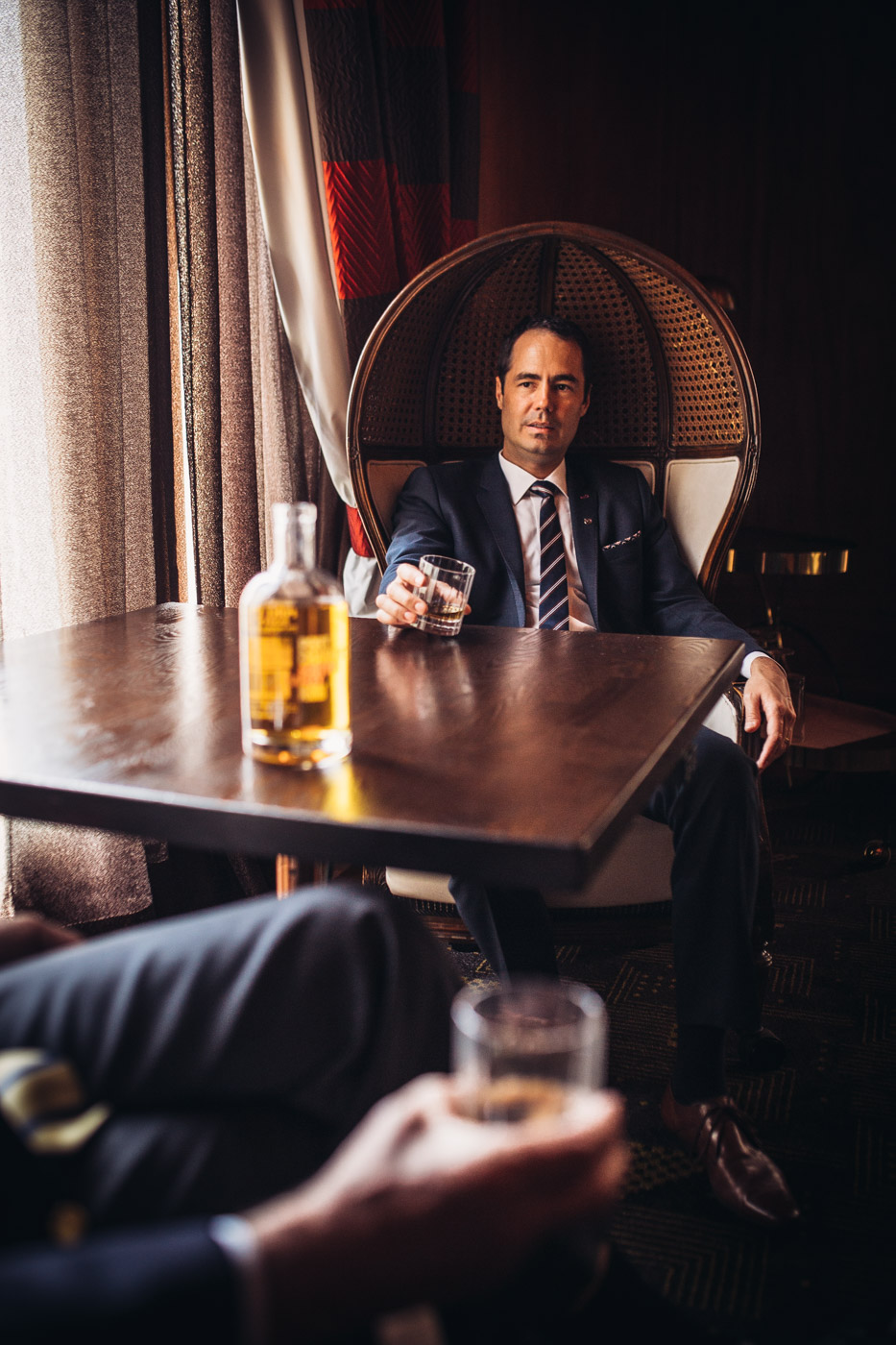
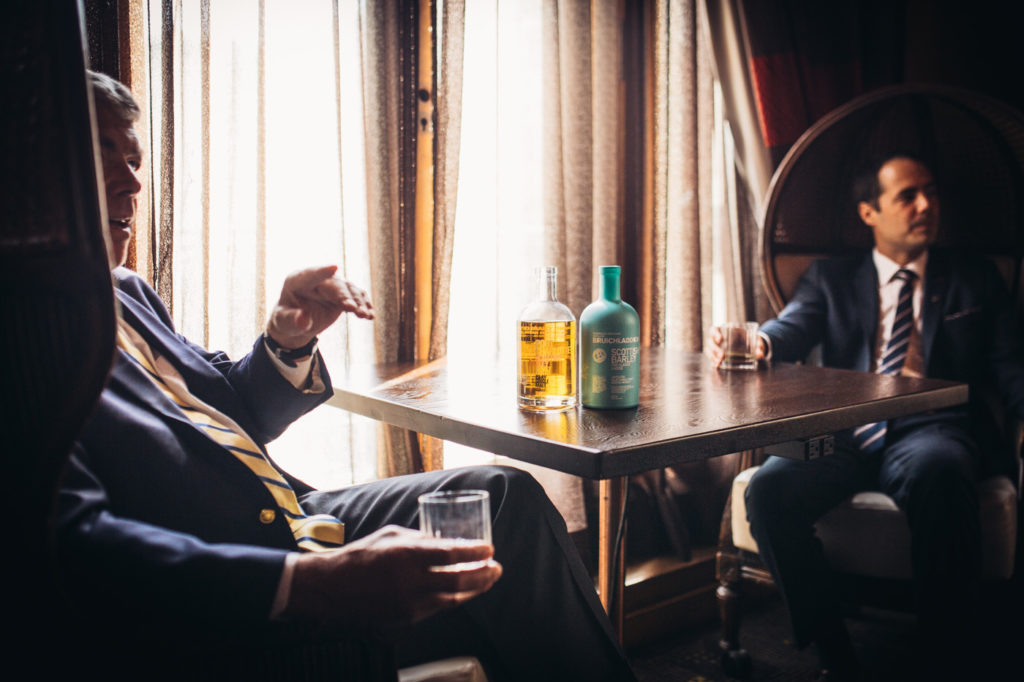

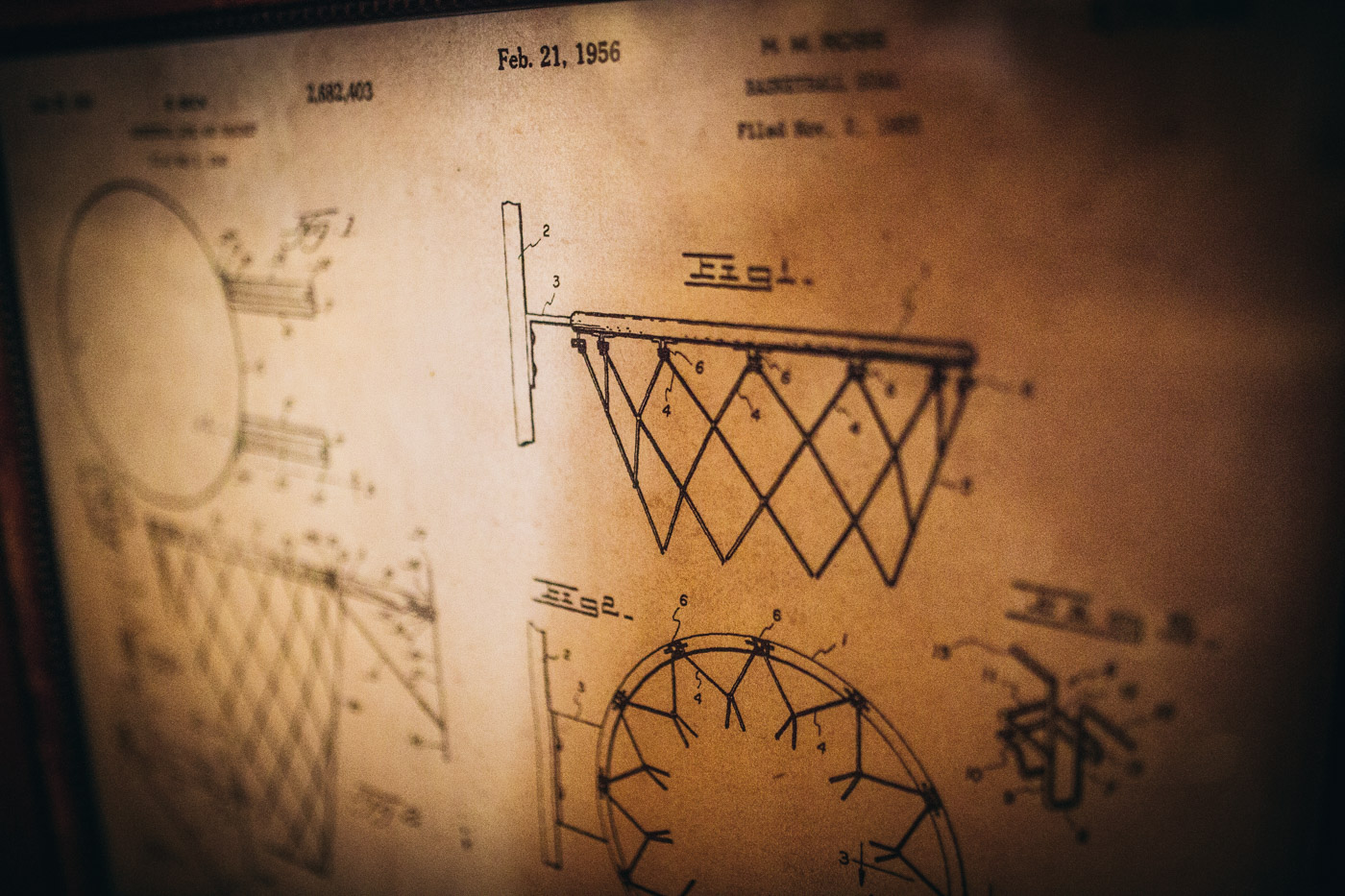
To Steve, the focus on that last aspect was perhaps most important. “I think that came from my parents; they always did things to include family. Mostly it was boating, but there were other trips that we took, and family was important to them. That instilled the same sense in me, and now I can see it in my kids. They’re the best of friends. It’s very special and very gratifying.”
With family time a clear priority, it seems like that work would creep into off-site conversations. Cory says the club isn’t a topic of discussion outside the walls of 7th and Olive––a sense of restraint that again, Steve says was passed on from his own dad. “My dad was the same way; he could shut it off. I can, too.”
But when they’re inside the club, the men work together at a precarious balance between preserving the traditions of their lineage, and pressing forward with details that will resonate with the evolving city around them. “The key is to stay relevant,” Steve says. “History is one thing, but if you are not relevant, you’re going to have a building that is like a museum that nobody wants to come to.”
Staying true to the family heritage meant resurrecting the club’s original mission, while finding ways to apply it in the contemporary context of Downtown Los Angeles. Cory explains, “One of the things we did was bring back the original mission statement of the club: ‘LAAC is dedicated to the lifelong pursuit of health-giving amusements.’” The notion is a rudder that helps the club focus in terms of what it offers its members.
“Think of the words, “Health-giving amusements,’” Steve picks up his son’s thought. “It conjures a lot of things––it can be sports, it can be working out, it can be socializing with friends, meeting people…”
“Having a drink,” Cory adds.
Steve nods. “It seemed just as relevant today as it did back in the 20s. I could just see my great-grandfather espousing that philosophy––he was quite a character. He always pursued happiness.”
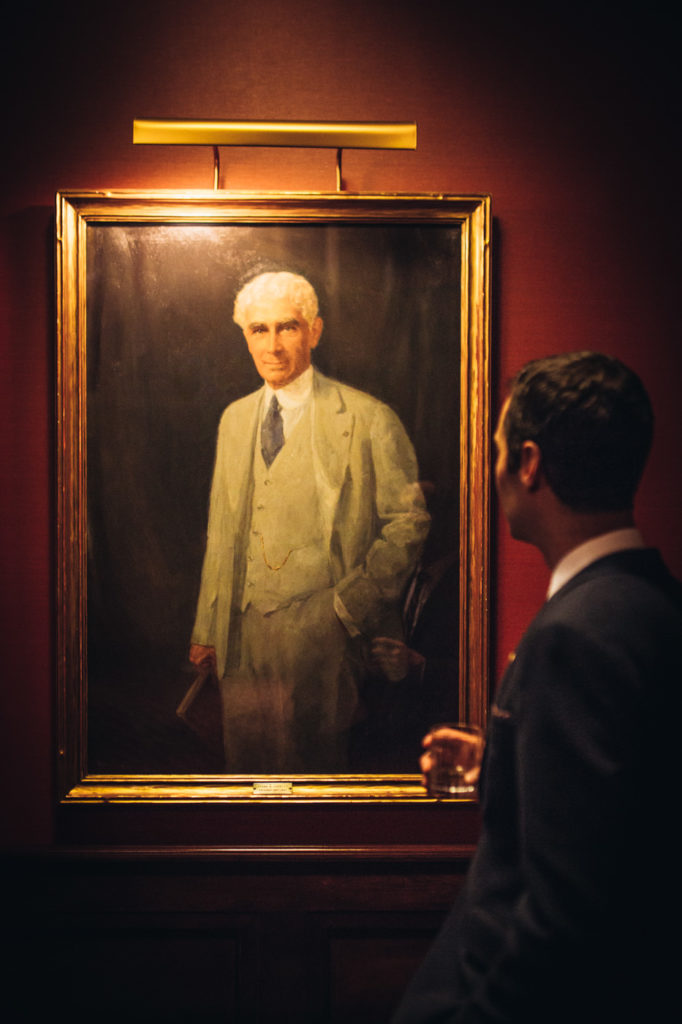
With that objective in mind, each of the men bring their own strengths and skills to the club––a dynamic Steve says was the same between he and his own father. “With my father, we got along really well. We didn’t always agree on things, and Cory and I don’t always agree on things, but we manage to work things out. And I see my situation now like my dad had with me, years just prior to retirement. I was the younger person with ideas, and the younger connection with my generation, and Cory is the same way,” Steve lifts his glass between sentiments, and gestures around the room, with its art deco carpet, restored blueprint artwork and central bar boasting a menu of contemporary craft cocktails. “Most of the things you see in this club in terms of renovations and some of our marketing ideas are him. He’s advocating for are things that are going to make this club succeed, given the downtown environment, and what’s going on here.”
With their father-son collaborations both in and out of the club, the Hathaways aren’t ready for the passing of the baton quite yet. “I still have a few years left in me,” Steve smiles, and his son agrees. “Everything works so well together. I’m not in any hurry to see anything change,” Cory says.
The club and its two leaders are an anchor of posterity among the churning city below, but remain in tune to changing tides. Like world-class whisky, which nods to tradition while bending toward modern flavor, they understand the importance of style and legacy, building on what preceded them while always looking ahead.
In the meantime, for a father and son that spend so much of their time together, moments of innovation and connection can sometimes blend, arriving from one in the same:
“Over a good glass of whisky,” Cory laughs, tumbler in hand.
Steve responds in kind, lifting his own. “To whisky-storming sessions.”





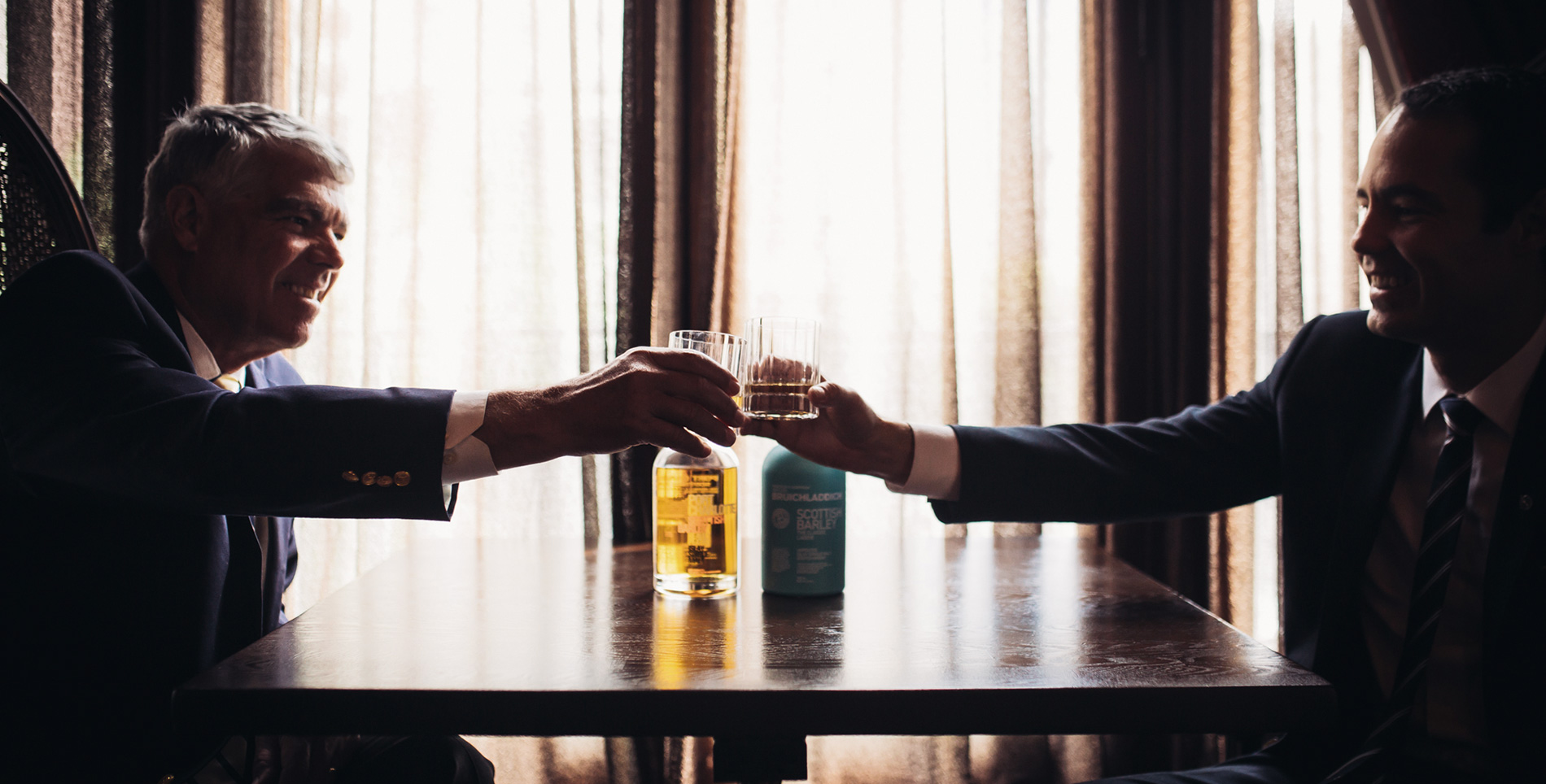

Our comments section is for members only.
Join today to gain exclusive access.